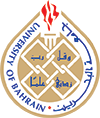Six Sigma Quality
COURSE OVERVIEW
The Six Sigma Quality Micro-Credential course is designed to equip professionals with tools and techniques to enhance quality, reduce defects, and optimize processes across various industries. It is tailored to address regional challenges, the course focuses on applying the DMAIC framework, statistical analysis, and Lean principles to drive efficiency and meet international quality standards. Participants will learn to identify and eliminate waste, reduce variability, and implement sustainable practices, aligning with the middle east region’s growing focus on industrial diversification and global competitiveness. The course will include case studies from the oil and gas, construction, and manufacturing sectors, offering practical know-how to apply Six Sigma principles effectively, driving process improvements and achieving measurable outcomes in real-world scenarios.
KEY TOPICS COVERED
- Introduction to Six Sigma.
- Six Sigma Fundamentals (DMAIC Framework)
- Tools and Techniques for Quality Improvement
- Data Analysis and Decision-Making
- Lean Six Sigma Integration
- Sustaining Improvements
TARGET AUDIENCE
- Quality managers and engineers in Bahrain’s industries.
- Professionals in oil and gas, manufacturing, and construction sectors.
- Project managers and team leaders in local organizations.
- Public sector employees in healthcare, utilities, and education.
- Entrepreneurs and SME owners in Bahrain.
- Mid-level professionals seeking career growth.
- Entry-level professionals and recent graduates.
Statistics
This course employs a comprehensive delivery structure combining in-person sessions, blended learning, collaborative case studies, and guided project work, designed to provide a balanced mix of theoretical understanding, practical application, and flexibility to meet the needs of diverse learners.
- In-person Delivery (24 hours)
- Frequency: Once a week for 6 weeks.
- Class Duration: 4 hours per session.
- Description: These sessions focus on hands-on learning and direct interaction with instructors, providing foundational knowledge and engaging discussions to clarify core concepts.
- Blended Content Delivery (16 hours)
- Frequency: Twice a week for 4 weeks.
- Class Duration: 2 hours per session.
- Description: Combines live online instruction and self-paced materials, allowing flexibility for participants while maintaining real-time engagement with instructors.
- Case Study (15 hours)
- Frequency: Once during the course, after completing 20 hours.
- Scheduling: Collaborative and flexible timing.
- Description: Participants work in teams to apply Six Sigma principles to a real-world scenario, fostering teamwork and practical problem-solving skills.
- Guided Project Work (25 hours)
- Frequency: Once during the program, after completing 40 hours.
- Scheduling: Hybrid approach (independent work with periodic mentorship).
- Description: Focuses on independent application of Six Sigma tools and techniques to a relevant project, with guided support to ensure successful implementation and measurable outcomes.
Total Program Details
- Duration: 80 hours over the course span.
- Modes: A mix of in-person, blended, and hybrid learning approaches to ensure flexibility, engagement, and practical application.
- Assignment (10%): Assignments will assess the depth to which the participant can effectively apply theoretical concepts to drive quality improvements.
- Case Studies (30%): Theme: Identify the root causes of defects and recommend solutions to reduce them.
- Guided Project (60%): The objective is to assess the participants’ ability to independently apply Six Sigma principles and tools to a real-world or simulated problem.
Instructor
Domain
Date
To be announced
No of Students
30
Hours
80 hours
Duration
8 weeks
Credit Points
2
Fees
500 BHD
Level
Language
English
Venue
Lab\ Classroom
Time
– Mon and Wed, 5:00 PM – 7:00 PM (Online)
For further Information, please contact:
Mr. Mohammed Al-Hooti
Tel: +973-33777339
Email: malhooti@uob.edu.bh
